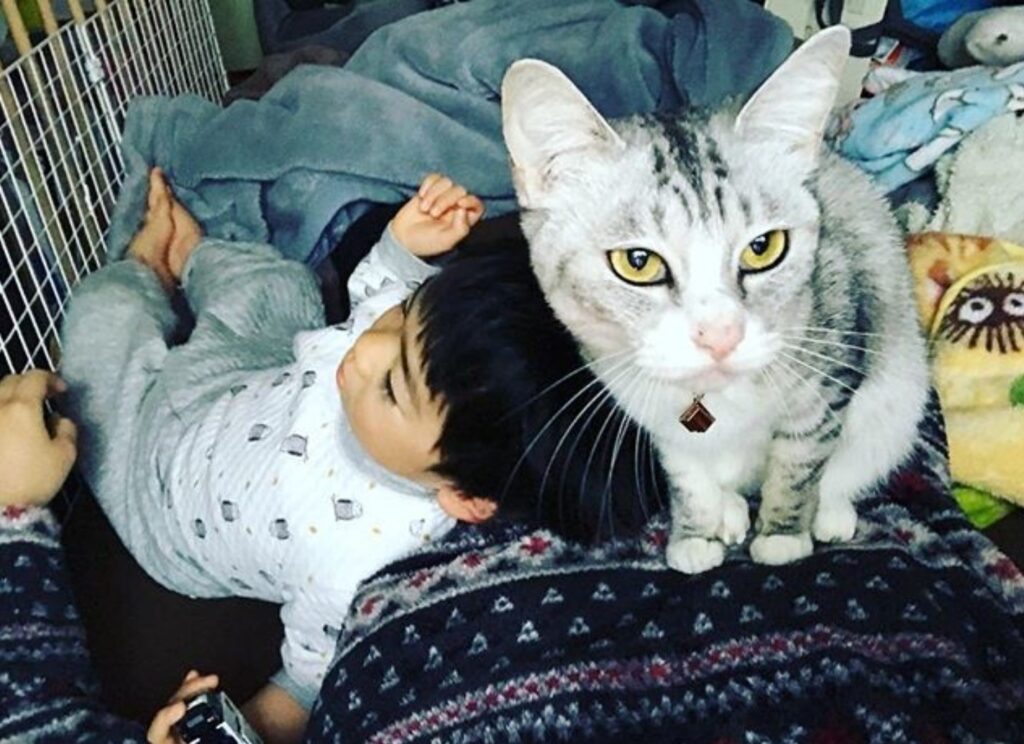If your autistic child is obsessed with your cat then this is the article for you. We explore everything about the behaviour and question is it such of a bad thing or not?
Autism and being obsessed with a cat
Children on the autism can often tend to develop strong interests or fixations.
It just so happens that cats can be particularly captivating for them.
Whilst every child is different, here are some potential reasons why an autistic child might be obsessed with a cat:
Predictable behaviour
When compared to dogs and even other children, cats tend to have consistent routines and behaviours.
This can be appealing to autistic children who may prefer order and predictability. Knowing what to expect from a cat can offer a sense of security and comfort.
Companionship
Cats can provide a calming presence and a sense of companionship for autistic children.
These are kids afterall who who may struggle with social interaction or find sensory overload overwhelming.
The rhythmic purring and predictable routines of cats can be soothing and grounding.

Sensory input
The soft fur, gentle movements, and rhythmic purring of a cat can provide a stimulating and enjoyable sensory experience for autistic children.
So spending time with and stroking cats may be pleasant to those particularly sensitive to touch, sound, and movement.
A special connection
Autistic children often have a strong affinity for animals, and they may feel a deep connection with a particular cat.
This connection could be based on a sense of basic understanding or simply a feeling of love and companionship.
Rigid focus
An obsession with a cat can provide a source of focus and engagement for autistic children.
Autistic children can have special interests which mold into a rigid focus.
Caring for a cat however can give them a sense of responsibility and routine, which can be beneficial for their development.
Is an autistic child being obsessed with a cat a bad thing?
When considering intervening in an autistic child’s relationship with a cat it is worth asking the question if it is a bad thing or not?
Without turning this into a dog vs cat article there are some factors relating to a cat which provide comfort.
For one it takes quite a lot for a cat to become aggressive.
I appreciate that there are lots of placid dogs out there but on the whole it is fair to say that cats are more mild and controlled in their behaviour.
Another factor to consider is the cleanliness of cats.
Again I am not suggesting that they are germ free but in the scale of cleanliness compared to other animals they would score highly.
Then if you take into consideration all of the above listed reasons behind a child’s obsession with a cat you may want to just let them continue.
Afterall a strong bond with a cat can foster empathy and feelings of responsibility in children.
It’s not always all positive however.
One factor which may have led to you reaching out for assistance from the internet would be if the relationship with the cat is harming your child’s development of human relationships.
Put simply is your child’s social and mental development being hindered?
If that is the case, here are some tactics to consider;
Set clear boundaries
Try to establish clear and consistent rules regarding the cat’s care and interaction.
This could involve setting schedules for playtime, feeding, and grooming, ensuring responsible interactions that respect the cat’s needs.
Using something like a schedule board could be helpful here. Consider allocating an hour a day for playing with or caring for the cat.
Foster social connection
Gently encourage your child to interact with other children and adults.
Enroll them in activities like sports, clubs, or social groups based on their interests.
Building friendships and positive social interactions may lead to your child automatically spending less time with the cat.
Expand their interests
Introduce your child to other engaging activities and hobbies they might enjoy.
Explore their existing interests and suggest related activities, ensuring variety and opportunities for discovery.
This can help broaden their focus and provide alternative sources of fun and fulfillment.
Summary – Autistic child obsessed with cat?
It’s important to remember that every child is unique, and their reasons for becoming obsessed with a cat will vary.
Some children may be drawn to the animal’s independence and self-sufficiency, while others may appreciate their playful nature or their ability to provide comfort.
If you’re concerned about an autistic child’s obsession with a cat, it’s always best to speak to a qualified professional who can provide guidance and support.
They can help ensure that the child’s fascination with the cat is healthy and positive.
They also may be able to offer suggestions for managing any challenges that may arise.
Any tips or ideas?
We would love to hear from you if you have got any techniques or ideas for our readers to try.
Be sure to leave a comment if any of the above has helped or if you have any ideas we can add to this article.
Also be sure to search for any other articles you might find helpful.
Try for example searching below for topics like ‘meltdown’ or ‘communication’.

